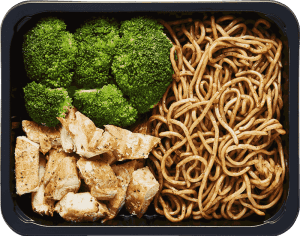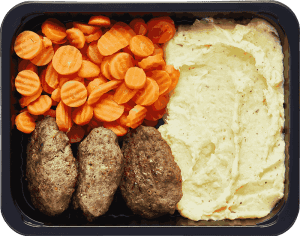Take advantage of bulk discounts of up to 20%. No code needed!
- Delivery time: 1-2 working days
- Healthy meals
- Delivery within NL & BE
- 100% HALAL
Take advantage of bulk discounts of up to 20%. No code needed!

If you're new to fitness, it can be overwhelming to know where to begin. Whether you want to lose weight, build muscle, or simply get fitter, it's important to lay a solid foundation. In this guide, we'll discuss the most important do's and don'ts of fitness, the best approach for beginners, and how you can achieve your fitness goals with the right nutrition, training, and supplements.
One of the first things you should do as a beginner is determine your fitness goals. These can range from losing weight to building muscle mass or improving your overall health. Here are some popular goals:
When you start exercising, it's important not to overdo it right away. Here are some initial steps you can take:
When you're just starting out, it can be difficult to know which exercises are most effective. The best approach is a combination of strength training and cardio:
A fitness plan should focus on your personal goals and improving your performance. Make sure to include the following in your plan:
Nutrition plays a crucial role in achieving your fitness goals. What you eat before and after training affects your performance and recovery:





To prevent injuries and accelerate your progress, it's important to follow some basic principles:
Do's:
Don'ts:
Rest and recovery These are often underestimated aspects of fitness, but they are crucial for progress and injury prevention. When you exercise, especially strength training, tiny tears occur in your muscle tissue. During rest periods, your body repairs these tears, leading to stronger and larger muscles. Without sufficient rest, your body doesn't get the chance to recover optimally, which can ultimately lead to overuse injuries.
Here are the top reasons why rest and recovery are essential for beginners:
How much rest you need depends on your training intensity, the type of training, and your fitness level. Some general guidelines for beginners are:
Rest and recovery aren't an interruption to your progress, but an essential part of it. Make sure you take this seriously and plan your workouts in a way that gives your body time to recover. With sufficient rest in your schedule, you'll see results faster and be better able to achieve your fitness goals.
For beginners, using supplements can be a valuable addition to their diet and workout routine, especially since the body needs extra nutrients during this phase to adjust to the physical demands of fitness. Supplements can help accelerate results, promote recovery, and optimize performance. Here are a few reasons why supplements can be beneficial:
Important: Supplements are meant to complement your diet, not replace it. Focus on a healthy diet first and use supplements as additional support.
For beginners, some common mistakes can quickly lead to frustration, injury, or lack of progress. Here are some of the most common mistakes and tips to avoid them:
Motivation is often the biggest challenge for beginners. The first few weeks are usually exciting, but after that, it can become harder to keep going. Here are some tips to keep your motivation up:
Getting started with fitness can be challenging at first, but with the right knowledge and approach, you can make rapid progress. Remember to clearly define your fitness goals, create a solid plan, focus on nutrition and recovery, and give yourself time to grow. With the right mindset and the right support—such as ready-made meals, Proteinshakes and supplements by Prep The Food – you can make every step of your fitness journey successful.
Coupon copied
Login with your personal pre -food account
Or
Not a prep account yet?
Register within a few steps and create your own PrEP account for personal offers and promotions.
Register now and create a personal prep account
Or